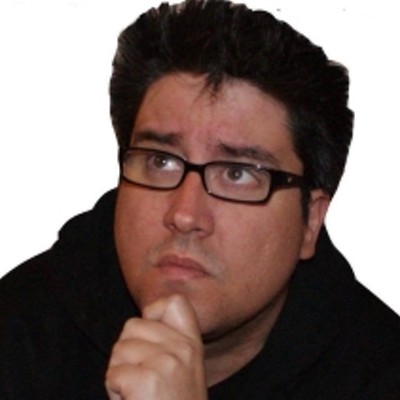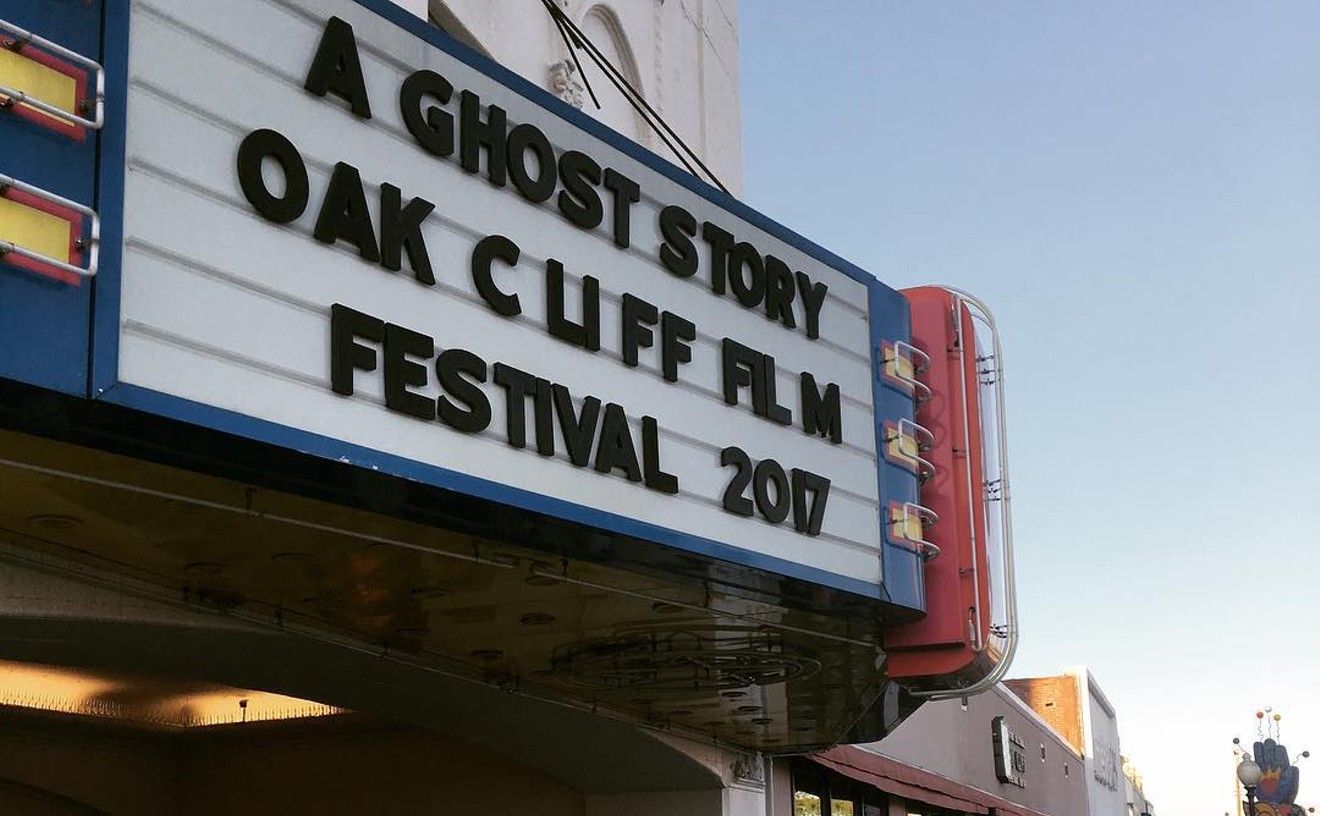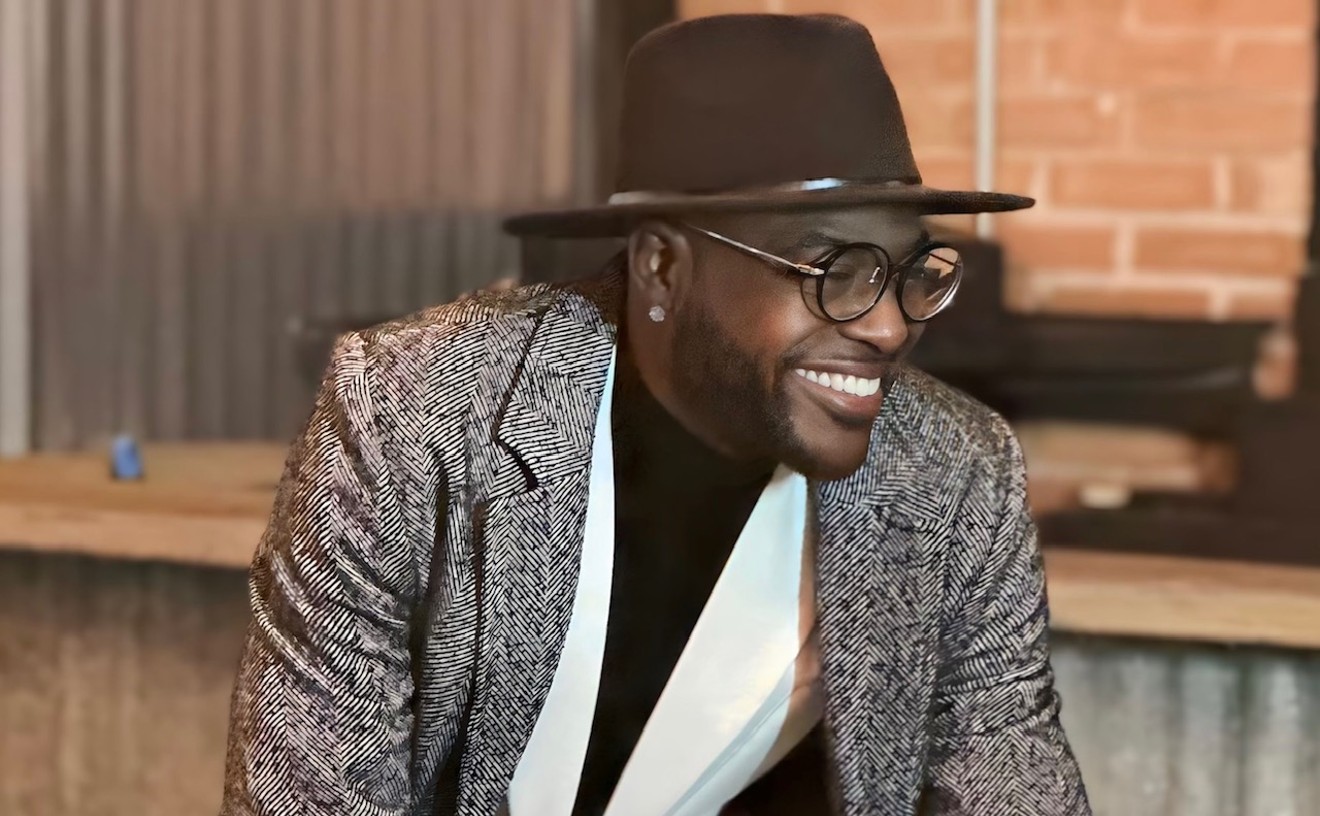Three tours with the Army in Iraq and Afghanistan left Raul Sanchez with post-traumatic stress disorder, crippling anxiety attacks and, at one time, a substance abuse problem.
So, naturally he turned to comedy.
That might sound odd, but for Sanchez, the San Antonio standup comedian recently named the Funniest Comic in Texas in a competition among 24 handpicked funny-people at the Addison Improv, comedy is a form of therapy. Sanchez spoke to Mimxaster about how a comedy club's open mic night helped him through one particularly serious panic attack, his attempts to weave his military experiences into his act and the science of "why funny is funny."
When you were invited to the FCIT competition, did you think you were going to win? Uh, not really. I thought I had a pretty good chance because some of the material I used was strong. I didn't think, man, I know I'm going to win this.
I was a drug addict there for awhile and when I won Funniest Comic in South Texas [in 2012], I was doing a lot of drugs. So when I stopped doing drugs, I thought that maybe that would be like a factor, but thank goodness that it wasn't. It turned out much better. I think I performed a lot better, which is a dumb mentality to have, but I guess that what happens when you do that.
It seems like some comics or writers who go through substance recovery worry that they won't be as funny. Yeah, definitely. It's a very stupid confidence and totally unnecessary but when you're caught up in that, that's how you think of it. I didn't have a lot of confidence going into that competition.
You were going up against some tough competition but you seemed really confident. I get told that a lot, but I almost threw up like two or three times before I went up on stage that night. I get very nervous, and I couldn't eat that whole day. I could feel it. As it got closer to showtime, I started to feel a lot of anxiety and feel like I was going to throw up. Once I get on stage, it goes away, especially if it's going well.
But you've won contests before and you got invited to this, so does that change your confidence at all? Not in the least bit. I just did a regular open mic down here in San Antonio and was completely overtaken by my anxiety. I can just imagine myself ruining it, and it never goes away. ... I just did this show on the Thursday after the competition at this place in San Antonio and before I got on stage, I was just thinking, "Oh Jesus, I'm gonna bomb so bad." I ended up going on stage and I did very well but for some reason, I was just thinking, "Oh God, this is bad." I don't know what it is.
Do you feel that your goal is to get over that or does it drive what you do? I guess that's the part I haven't figured out yet. It does drive me to want to write new material and figure out, if I was in the crowd, what would I think of this material so I can go over it a lot in my head at home. Maybe that's part of the anxiety. I'd like to think that even if I didn't have it, I love standup and I love doing it and I really try to work hard at it but I don't know if it will ever go away or become easier. I'm hoping that one day, that negative feeling goes away and it's still regular me.
Were you a comedy nerd growing up or was it something you after the military? I never once thought that it would be something that I would do. The only comedy I really knew as a kid was watching The Simpsons a lot. I would watch The Simpsons religiously and the only thing I can remember as a kid being 14, I stayed at my cousin's and I would stay there a lot. They had HBO and sometimes there would be a standup, and my cousin didn't really care for it and he was going to change the channel but I would say, "No wait, let me see that. I don't know why but I think this is amazing." That was the first time I saw standup comedy and I thought it was just amazing. This guy was making people laugh and just standing there with a microphone. He's not slamming pies into his face or anything like that. It wasn't until I started doing standup that I started listening to other standup comedy, a lot actually.
How did you go from that to getting on stage? What was your first show like? It was at the Laugh Out Loud comedy club in San Antonio. I was driving around and I'm noticing a pattern here but I was having a panic attack, and I didn't know what to do. I saw the marquee and I thought maybe this will help. It happened to be an open mic night, and I decided to go in and just look at it. I had such a great time just watching and looking at the guys trying their stuff. Some of them were good, some of them weren't, but I had such a good time watching all of it and I thought, "I should do that, just to try it." The whole week, I wrote until the next week came and I went.
How did you do? I did pretty well. It was all dirty, very dirty material. Nothing like what I do now. Not that I'm the cleanest guy ever because I curse a lot, but it was talking about genitals and all that stupid stuff. I did very well and then the next week, I went up there again and I did another different five minutes, which worked all right, and the manager there went up to me and knelt next to me at the table and said, "You know, you don't have to do new material every night. You should work on it and make it better." I took that as kind of a compliment, that the manager was saying that I did well. I didn't listen to him and the next week, I bombed really bad. I went home crying, and I'd listen to an album by Rodney Dangerfield and try to figure out why funny is funny.
I've never heard it put that way before, "why funny is funny." I mean the science of it. ...One of the things that I realized is that this is a formula. You make a statement that puts you in a certain stance and the next statement, you unknowingly contradict yourself. I was like, "Oh, that's a formula. I've seen that in different shows." So slowly, I started not studying it specifically but realizing it as I was listening and having a good laugh. Certain things would just pop out like the misdirection thing, the self-deprecating thing, all of these little things. So when I was starting off, I started doing a bunch of one-liners for like a whole year. They were terrible [laughs] but I thought I had stumbled onto something.
But that's how comedy works. You try to emulate one guy's style and see how that works and then you try something else. Eventually, it just becomes using those different tools, and that's helped me a lot because I don't really think I'm that funny. I'm a better writer than I am a performer and maybe that will change with time, but I've seen a lot of guys who are way more hilarious than I could possible ever hope to be but they just don't care for standup. They don't understand. Why should I try to be funny on command? That's why, for me, it's an art.
If you were nervous, it didn't show. A lot of it is because I've done [the material] so many times and it's worked so well. I don't want to say that I wrote this amazing material that's fail-safe. I know it works and when there's a very attentive audience that's hanging on every word that I say who interacts with me as opposed to doing a bar with that same material and people are tuning out and going, "Why is that guy talking right now? I just came here to watch the game." It eases me a little.
You talk a lot about your military experience in your act in kind of a unique way. Was that something that started from the beginning? Through my first year, I explored with doing longer bits instead of just one-liners or little non-sequiturs. I wanted to tell a story about something that really happened. We were in a firefight in Iraq but that took a lot of time using all the skills I had learned working on little jokes. The first time I tried to tell a joke about that, it was so bad. It was awful. People would just look at me like they didn't want to know that. That's deep. That's heavy. I didn't know how to make it funny. Eventually, it made me realize I was having too much ego. I wanted people to know what I had done and that it was something dangerous so my ego was getting in the way of that material being funny, the fact that I wanted them to know that I didn't something "heroic." Once I suppressed my ego and threw it away, I was like OK, now I don't have to prove to people that this is something heroic, just something silly. It took a year and what made it funny was it took away my ego from it and just made fun of the whole situation and made fun of myself and it actually worked.
It seemed like you wanted to talk about it in kind of a serious way and still be funny about it but at the same time; you didn't want to whitewash what happened. Absolutely. When I say "ego," it was way darker but not realizing if I just toned it down a bit from the whole action sequence in the movie in my head, this could be funny. Obviously, there's still some ego involved in the sense you want to tell everybody something you did, but now it's palatable. It's not gross in the sense of self-aggrandizing.
Did you go through any post-traumatic stress disorder (PTSD) after you came back? I've been diagnosed with PTSD when I first got out. I was in the psych-ward. By the way, I'm not afraid to divulge any of this information because I really don't care. Usually it would happen after something nice would happen to me. Six months in, I won this clean comedy competition in San Antonio, and I got a little trophy and a week after, I started getting really bad anxiety and I had to put myself in the VA psych-ward for a week. I'm starting to get better with dealing with it. Most of the time now, I just go on stage and talk about something that's either bothering me and try to make it silly, and I'm getting better at it.
How did you do after your most recent win? I came home, I went to work and just started crying. I was having a panic attack and I was like, what is it? This is how I know I'm getting better because I'm recognizing it. "Oh this has happened before. I've been here." So I started walking myself through it as I remembered it. When I won the Funniest in South Texas, I was doing a ton of drugs and I spiraled out of control after I won to the point where I had to stop. I had to re-evaluate what I was doing, and I was able to stop successfully and I've been drug free for almost two years. So it happened again but this time I was able to actually use my mind to control the situation. Basically, your mind is triggering that fight or flight reaction. I don't know what it has to do with me doing well. I really haven't been able to pinpoint it, to be honest with you. It might have something to do with my mind being so wired to be on alert and have that anxiety that now, it's like "Whoa, what's going on? Why is everything so calm?" Other than that, I have no idea. It's definitely a lot better now than where it was before, just in terms of growing mentally and emotionally.
Do you feel like there's something about your PTSD that drives your comedy or helps you with your writing? Yeah, I think to a certain extent because I'm so propelled by fear, like the fear of bombing and doing horrible on stage, is what makes me prepare very intensely before I try new material out. As far as what I talk about, I think so. Usually, the funniest bits I have is something that's upset me and I try to make it so silly and outrageous that it disarms whatever that is that's bringing the fear. I talk about this bit about having to buy a pregnancy test because I had a pregnancy scare, and I was very anxious when I did that. I was like, "Oh my God, my life is going to get turned around." A lot of people liked it and that's why that's funny because I was trying to so desperately to make light of something that was so possibly life changing [and it turned out she wasn't pregnant[ and the desperation of trying to make light of it turned it into a very funny joke.











